
This update from the Office of Federal Relations is part of ON THE HILL - Issue 9. ON THE HILL is a biannual report summarizing activity at all three levels of government, as outlined by representatives from our Offices of Federal Relations, State Government Relations and Local Government Relations.
Blackburn, Fort Campbell officials visit Vanderbilt to see Pathfinder-funded research
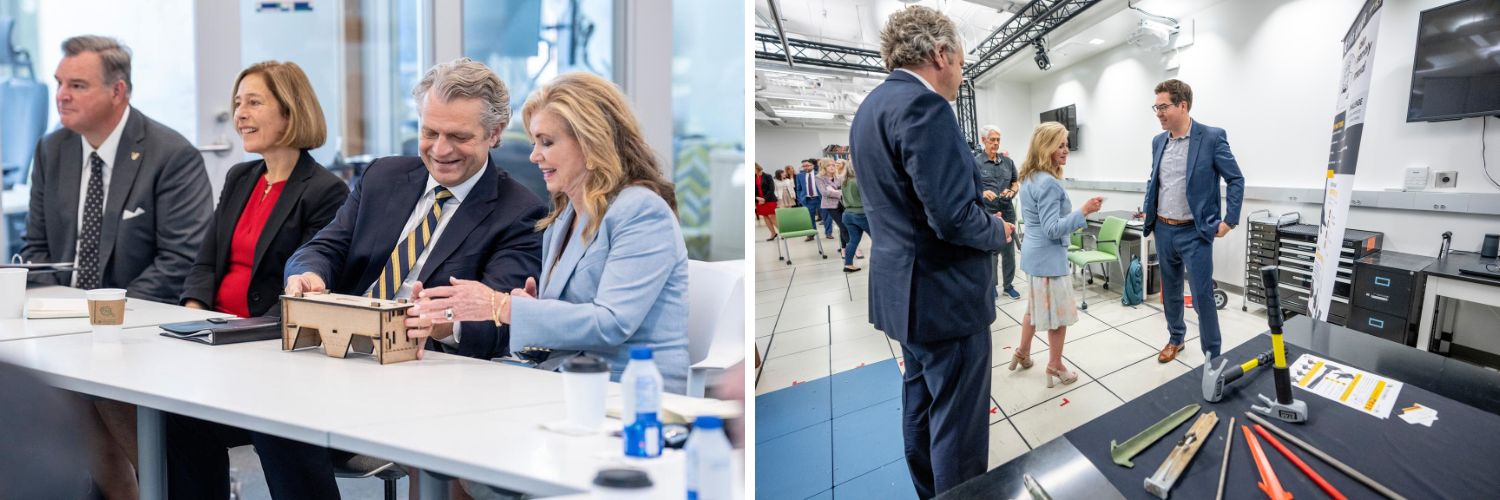
On Aug. 15, Vanderbilt Chancellor Daniel Diermeier hosted Sen. Marsha Blackburn and senior leaders from Fort Campbell on Vanderbilt’s campus. Organized by the Office of Federal Relations and in partnership with the Office of the Vice Provost for Research and Vanderbilt Communications and Marketing, the visit built on prior meetings on Capitol Hill related to Vanderbilt and the University of Tennessee’s growing partnership with Army Futures Command and Fort Campbell. The campus visit gave the senator a much more robust, in-depth look into the Pathfinder-funded research taking place at Vanderbilt, in close coordination and collaboration with partners at Fort Campbell, including the 101st Airborne Division, 160th Special Operations Aviation Regiment, and 5th Special Forces Group. Hosted at the Wond’ry, Vanderbilt’s Innovation Center, the visit also demonstrated how Pathfinder-funded and soldier-inspired innovations are transitioning into the commercial marketplace.
After the technology demonstrations and discussions, Chancellor Diermeier and Sen. Blackburn participated in a press availability session, attended by news outlets including NewsChannel 5 , WKRN and the Nashville Post .
This visit built on a visit earlier in the summer by the national security teams for Sen. Blackburn and Sen. Bill Hagerty to see Pathfinder-funded research.
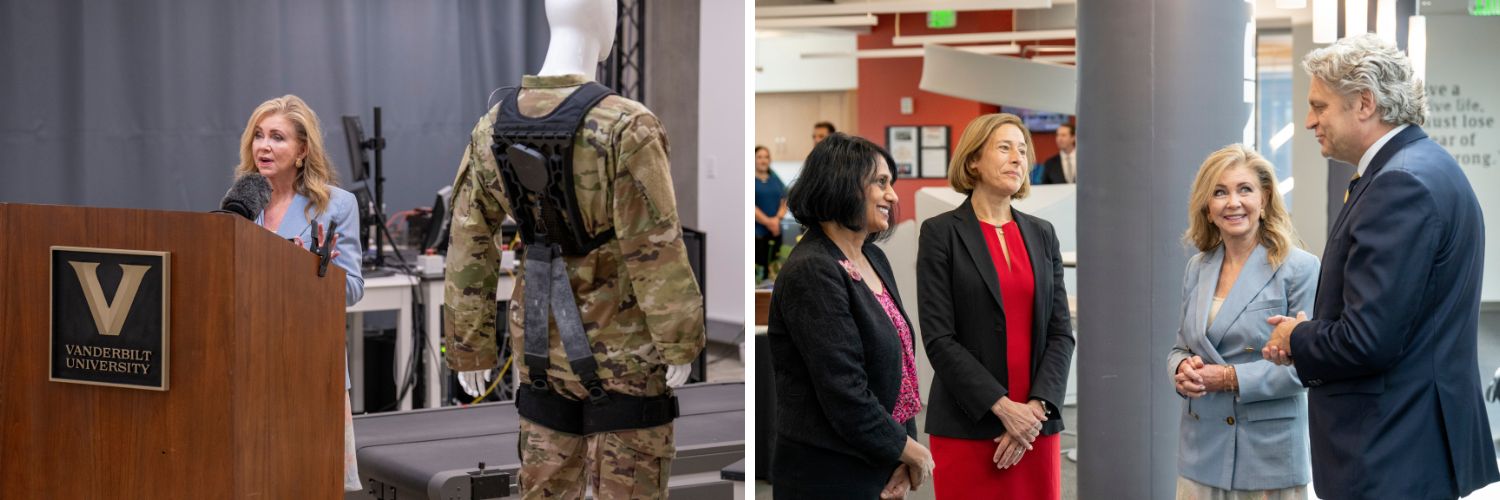
CHIPS and Science Act enacted
It was a long and tortured legislative saga , but both chambers ultimately cleared H.R. 4346, the CHIPS and Science Act, with comfortable bipartisan majorities and President Biden signed it into law. The science provisions of the bill reauthorize the National Science Foundation, the National Institute of Standards and Technology, NASA, and the Department of Energy’s Office of Science and include policy language related to bioeconomy research and development, broadening participation in science, regional innovation, energy security, sexual harassment in science, and more. Earlier versions of the bill had highly problematic language related to research security, but the bulk of those provisions were not included in the final bill. Earlier versions also included policies related to the Department of Education, high-skilled immigration, and international education; they were not included in this bill. The final bill does still establish an unprecedented set-aside for institutions in EPSCoR states (Established Program to Stimulate Competitive Research), potentially jeopardizing NSF funding for non-EPSCoR states such as Tennessee.
While the CHIPS title of the bill includes significant real money for domestic semiconductor manufacturing, the vast majority of the science provisions are only authorizations; Congress will need to follow on with appropriations to realize the ambitious vision laid out in the CHIPS and Science Act.
OFR will host a Federal Forum on Sept. 22 on campus to further discuss the science provisions of the CHIPS and Science Act.
OFR has been advocating on this legislation, in its myriad forms, for several years, working with associations, coalitions, and other advocacy groups aligned with our interests. We worked with the Tennessee delegation to educate them on the university’s views and priorities in the bill as the legislation progressed through the process. OFR played a leading role in attempting to modify the unprecedented EPSCoR language included in the original Senate bill.
Tennessee Sen. Bill Hagerty (R) and Reps. Jim Cooper (D-TN05) and Steve Cohen (D-TN09) supported the final package; the rest of the Tennessee delegation opposed it.
Additional resources:
- A section-by-section summary of the entire package.
- The House Science Committee’s fact sheet and summary of the package.
Vanderbilt administrators, faculty, staff and students join OFR in advocating for funding priorities
Once again, the first half of the year proved to be extremely busy for OFR as the FY 2022 spending process wrapped up in March—six months into the new fiscal year—and the FY 2023 spending process got underway. With Capitol Hill opening back up in limited ways, OFR was able to orchestrate a mixture of virtual and in-person advocacy meetings with members of Congress and/or their staff to promote the university’s funding priorities for student aid, higher education programs and the federal research agencies.
Highlights included:
- Chancellor Daniel Diermeier returned to Capitol Hill to meet with key Tennessee lawmakers, continuing to push for renewed investments in research and emphasizing the important role Vanderbilt University plays in Tennessee’s broader economic development. Diermeier also emphasized the university’s growing partnership and collaborations with Fort Campbell, both in research and as an employer.
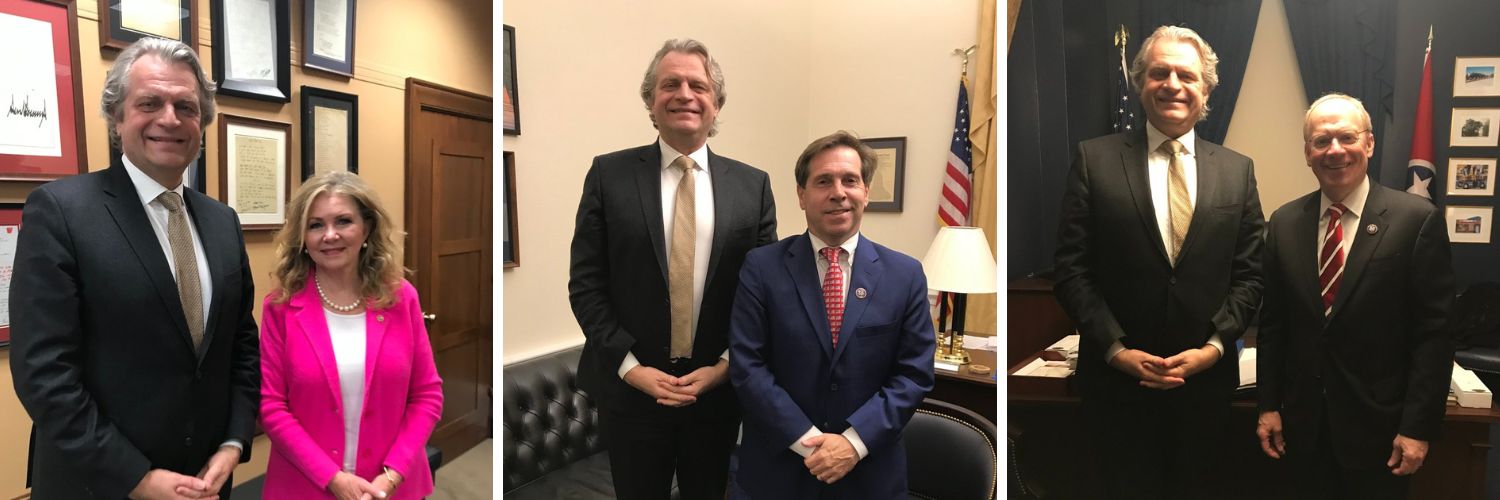
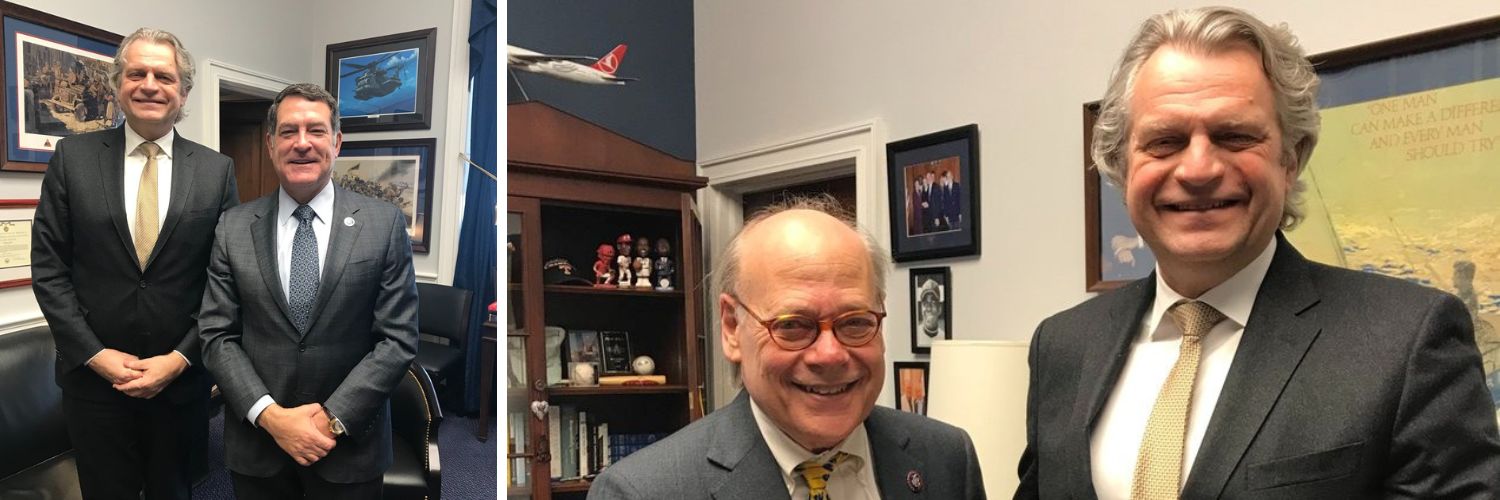
Once again, the first half of the year proved to be extremely busy for OFR as the FY 2022 spending process wrapped up in March—six months into the new fiscal year—and the FY 2023 spending process got underway. With Capitol Hill opening back up in limited ways, OFR was able to orchestrate a mixture of virtual and in-person advocacy meetings with members of Congress and/or their staff to promote the university’s funding priorities for student aid, higher education programs and the federal research agencies.
Highlights included:
- Chancellor Daniel Diermeier returned to Capitol Hill to meet with key Tennessee lawmakers, continuing to push for renewed investments in research and emphasizing the important role Vanderbilt University plays in Tennessee’s broader economic development. Diermeier also emphasized the university’s growing partnership and collaborations with Fort Campbell, both in research and as an employer.
- Peabody College Dean Camilla Benbow led the LEARN Coalition spring advocacy meetings with key congressional committee staff. Under Dean Benbow’s leadership, the LEARN Coalition brings together the nation’s leading research-active colleges of education to advocate for policies and funding to support research on the science of teaching and learning.
- Robert Penn Warren Center leaders Holly Tucker and Elizabeth Meadows and two humanities students joined OFR virtually to advocate for robust funding for the National Endowment for the Humanities and to thank our members for their past support. The students developed a short video capturing their and their peers’ views on the importance of the humanities to their education; this was part of a social media effort to promote NEH funding.
- School of Nursing Dean Pamela Jeffries met with Tennessee congressional offices to discuss some of the reasons for the nursing shortage that our country is facing, including a lack of sufficient nursing faculty to educate future nurses and challenges in identifying sufficient clinical placements for practicums. As a result of these efforts, the Senate HHS spending bill for FY 2023 encourages HRSA’s nursing workforce development programs to create a traineeship and fellowship program.
- VU and UT teams met with policymakers to advocate for Army Futures Command partnership funding . Vice Provost for Research Padma Raghavan, her counterpart at the University of Tennessee, and key members of their teams traveled to the Hill to discuss the Pathfinder-Air Assault partnership and related FY 2023 funding and defense authorization requests with key members of the Tennessee delegation.
- School of Engineering Dean Philippe Fauchet joined OFR in virtual advocacy in support of engineering research and education; his counterparts from across Tennessee also participated.
- Director Celso Thomas Castilho and Executive Director Avery Dickins de Girón of the Center for Latin American, Caribbean, and Latinx Studies were joined by two Vanderbilt graduate students to virtually advocate for the Department of Education’s international education programs.
FY 2023 Spending Bills Advancing – Continuing Resolution Through the Rest of 2022 Likely
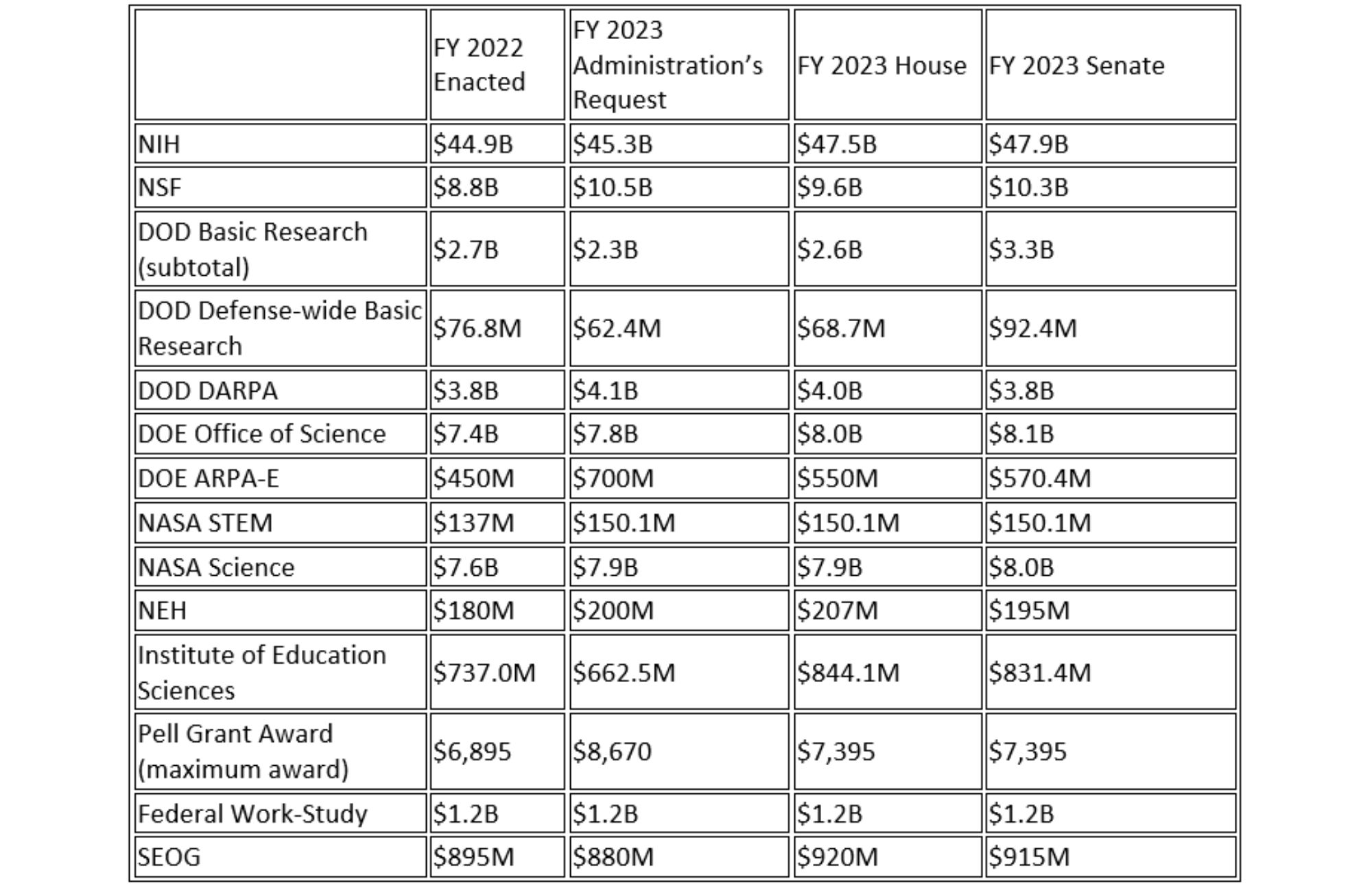
The House and Senate both propose exciting increases for most of Vanderbilt’s programmatic funding priorities, including double-digit percentage increases to the toplines of the National Science Foundation, the National Institute of Standards and Technology, and the Institute of Education Sciences, a $500 increase to the Pell Grant maximum award, and noteworthy increases to the Department of Energy’s R&D programs and early-stage Department of Defense R&D programs. That said, a final spending agreement is still far off and is likely to result in lower nondefense funding numbers; we expect Congress to pass a continuing resolution to keep the government open beyond the Oct. 1, 2022, deadline.
House appropriators approved all 12 of their spending bills in June and passed six on the floor in late July; that includes the bills that set funding levels for the National Endowment for the Humanities and the Departments of Transportation, Agriculture and Energy. The remaining six bills set spending levels for the National Science Foundation, NASA, the National Institutes of Health and the Departments of Commerce, Defense and Education. Democrats on the Senate Appropriations Committee debuted all 12 of their FY 2023 spending bills in July, though they will not proceed through the normal process for consideration. The bills, which were drafted without a bipartisan agreement on funding levels, amount to a wish list from Senate Democrats.
Congress’s progress on their spending bills this time last year was similar; as a reminder, they didn’t finalize FY 2022 spending until March 2022. The mid-term election this fall could further complicate the process for FY 2023, though we are strongly encouraging lawmakers to complete their work on FY 2023 spending in a timely fashion.
Part of OFR’s advocacy each year includes urging members of Congress to sign “Dear Colleague” letters to their appropriations committees expressing their support for various programs. OFR urges Tennessee members to sign letters that align with the university’s funding priorities. A few examples include Reps. Cohen and Scott DesJarlais (R-TN04) signing onto a letter in support of Department of Defense basic research programs; Reps. Cohen and Cooper signing onto a letter in support of $11 billion in funding for the NSF; and Sen. Blackburn co-leading a letter in support of DOE Office of Science funding.
Vanderbilt signed on to several coalition funding statements in support of our research funding priorities, including NSF, DOE Office of Science, IES and NIH; full details on these letters are here .
Vanderbilt celebrates the 50th Anniversary of the Pell Grant
Led by OFR, Vanderbilt engaged with the broader higher education community effort to commemorate the 50th anniversary of the Pell Grant program on June 23, raising visibility and highlighting the crucial importance of this program to enable access to higher education for low-income students. Through a concerted social media campaign, Vanderbilt celebrated the program and the many ways it has enabled student success and social mobility. Numerous partners on campus joined OFR in the social media campaign, including the School of Medicine Basic Sciences, Inclusion at Vanderbilt, and the main VU/VU Chancellor accounts. On Capitol Hill, bipartisan resolutions were introduced in both the U.S. House of Representatives and the U.S. Senate marking this anniversary. At Vanderbilt’s request, Reps. Chuck Fleischmann (R-TN03), Jim Cooper (D-TN05) and Steve Cohen (D-TN09) co-sponsored the House resolution. See more in this MyVU story.
Office hours
Starting in the fall, the Office of Federal Relations will begin offering general inquiry sessions, or “Office Hours,” several times per month for the Vanderbilt community via Zoom. If you have a question for our office or want to learn more about how we can collaborate, please schedule a time with us. Either Associate Vice Chancellor Christina West or Associate Director Heather Bloemhard will join the virtual meeting.
Federal Relations Team
-

Christina West
Associate Vice Chancellor for Federal Relations
-

Heather Bloemhard
Associate Director of Federal Relations
-

Collier Roberts
Government Relations Program Manager
-

Holly Alexander
Office Administrator